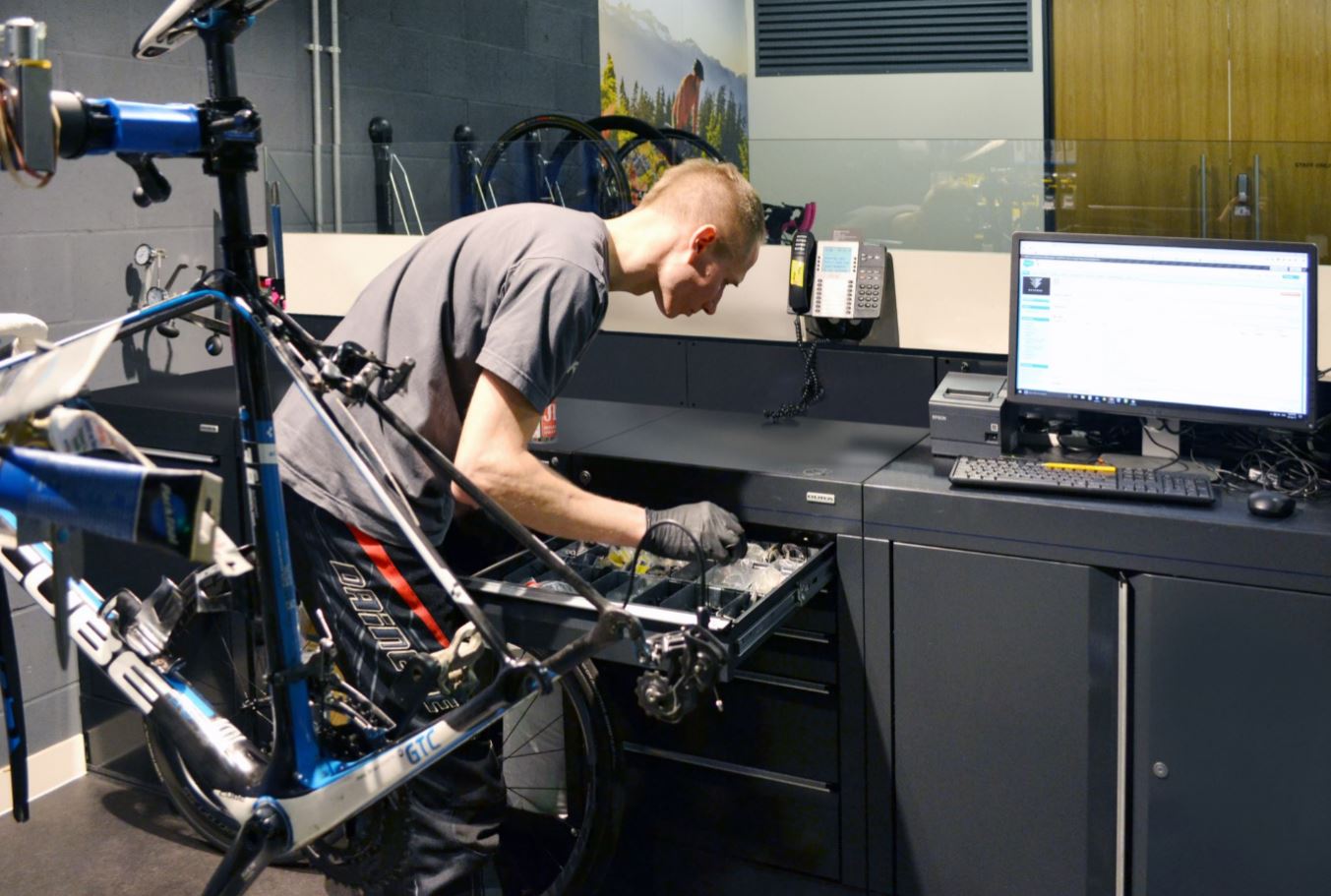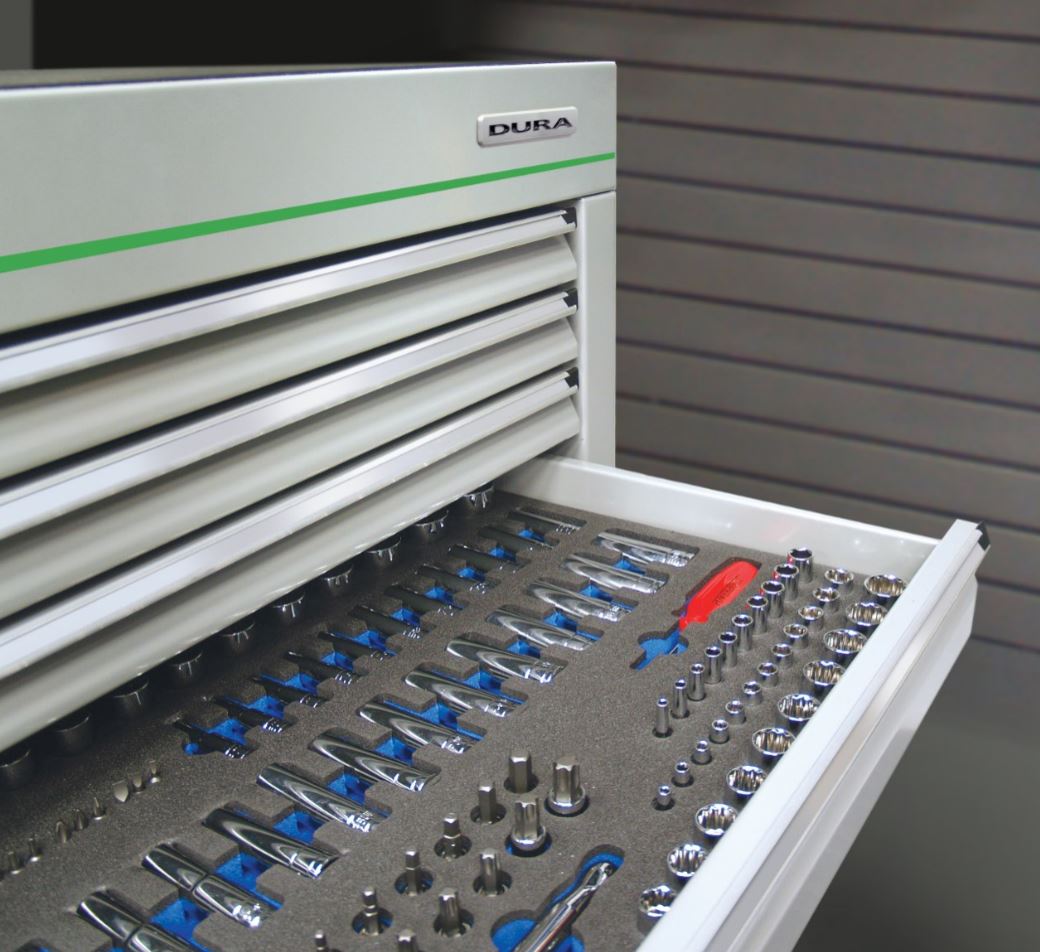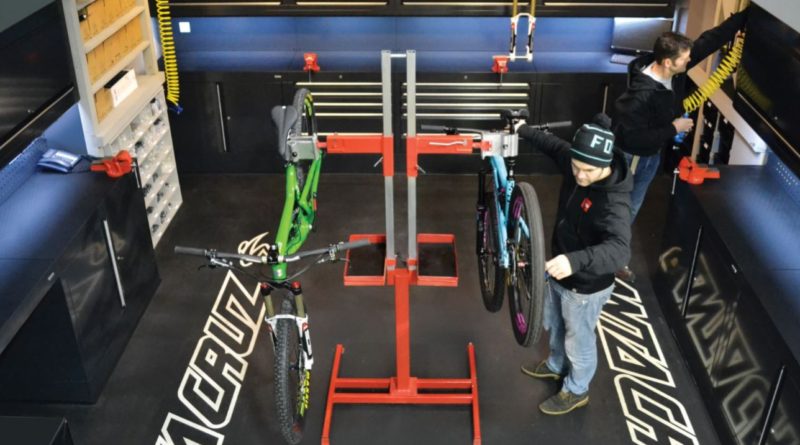Comment: Modernise your workshop to maximise your returns
By Jon McKnight
Imagine the laughter if a Formula One car screeched expectantly into the pits only to find one mechanic hunting around for parts while another asks, desperately, “Has anyone seen my spanner?”.
That would be unthinkable, but in the admittedly less hurried world of the cycle shop, a disorganised approach to repairs can be just as unimpressive for a customer.
Rifling through drawers in a vain attempt to find the right tool and sifting through stacks of cardboard boxes to find a part wastes time and money: your time, and your money.
And a serious cyclist who’s spent the cost of a small car on a road bike won’t appreciate what he perceives as an amateurish approach to what should be a professional repair. 
If that sounds a familiar scene, it’s not because cycle shop owners are lazy. Far from it. But a cycle workshop that’s simply evolved since the year dot can be so inefficient that even the most motivated cycle shop owner can end up, like the proverbial busy fool, working harder than he or she needs to and making less profit as a result.
Best practice has moved on. Instead of accepting the profit-draining inefficiencies of a poorly-planned or unplanned repair bay, some of Britain’s more visionary cycle shop owners have been investing in custom-built cycle workshops with a space for everything and everything in its place.
Their Dymo-labelled cardboard boxes have been replaced with sleek steel cabinets and wall units, fit-for-purpose lighting, and a well-thought-out layout that’s as cleverly conceived as that of a high-end fitted kitchen.
Their tools are no longer in piles or hanging from nails on the wall. Instead, their spanners nestle in cushioned inserts in drawers, making it immediately obvious where each one goes and even more obvious if one is missing.
Anything unsightly is hidden behind painted cabinet doors, the most frequently used tools are all at hand, and the cycle parts are neatly stored and easy to access.
And while some cycle shop owners might have been too embarrassed to let customers into their inner sanctum before, they’re making a virtue of placing the workshop right in the middle of the customer area, just as fine restaurants have open-plan restaurants that let diners see their meals being cooked.
“That makes customers feel much more confident about entrusting their bikes to you,” says Dominic Wishlade, the industrial designer who invented the concept of fitted workshops for cycle shops.
“Most customers love to see what’s going on, and turning repairs or upgrades into theatre that happens  in front of them strengthens relationships and shows them how dedicated you are to helping them.”
in front of them strengthens relationships and shows them how dedicated you are to helping them.”
Dominic didn’t reinvent the wheel, spoked or otherwise. He was looking at a fitted kitchen, years ago, when he wondered why no-one had applied the concept to domestic garage interiors.
His fitted garages, made of steel, proved such a revolution that world-class brands including Rolls-Royce, Bentley, Ferrari, Bugatti and Aston Martin began to use them for their own automotive workshops, and they were recognised with the prestigious Red Dot Design Award.
“Then cycle shop owners began approaching us,” he says. “We can do discreet, behind-the-scenes workshops, but they wanted stylish workshops that would look fantastic on the shop floor as well as being far more efficient than anything that had gone before.”
His company, Dura, can offer anything from a single cabinet to a full floor-to-ceiling installation, including the floor and the ceiling, and the steelwork can be painted in any shade on the RAL spectrum or adorned with branding.
“We don’t know how to build or repair cycles ourselves,” he says, “but we do know how to make a workshop as efficient as it’s possible to be.
“It’s like doing other people’s crosswords: we come in fresh, as an outsider, ask all the right questions, then come up with a design that makes the most of the space, looks state-of-the-art, and eliminates time wasted in looking for tools and parts.”
With the ever-growing online threat to bricks-and-mortar cycle shop viability, repairs and upgrades are one aspect of the business that remains lucrative – and by making the process as efficient as possible as well as an experience for the customer, cycle shop owners are seizing the opportunity to preserve or increase their net profit.
Editor’s note: In decking out your workshop with professional storage bike shops a number of options, including but not limited to:
Unior via 2pure
Park Tool, via Madison



